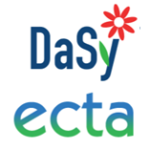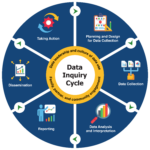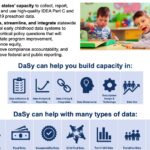
Stories from two states highlight the support that DaSy and/or ECTA can provide to Part C and Part B 619 programs seeking to improve their system, service implementation, and child and family outcomes.

April 2, 3 & 4, 2024.
Online workshop with IDIO keynote speaker Heather Krause from We All Count. The workshop covers We All Count’s Data Equity Framework from top to bottom and gives participants the training they need to evaluate data equity and apply tools to correct (and, most importantly, prevent!) critical issues in your work.

This guide supports Part C and Part B 619 program staff in addressing equity considerations at each stage of the data inquiry cycle. The guide incorporates key components of the DaSy Data Systems Framework and the DaSy Racial Equity Statement that can help states, territories, and tribal governments move toward more equitable practices related to program access, supports and services, and outcomes.
Overview Data Leadership Competencies Data Foundations Data Analysis Data Use & Sharing Introduction Data Visualization: Key Considerations Resources Data Visualization: Key Considerations for Effective Data Visuals When presented effectively, data […]

DEC. Deccember 2023. This presentation demonstrates ways to apply an intersectional approach to data analysis. DaSy/ECTA staff offer a grounding definition of the approach, highlight various examples of intersectional narratives in everyday media, and walk through a specific example of intersectional analysis of child outcomes data.

Conference: Early Childhood Inclusion Institute Date: May 2023 Presenters: Grace Kelley, Ginger Elliott-Teague, Sally Shepherd A facilitated discussion among participants to map a path to improving understanding of the scope […]

Conference: OSEP Leadership Conference Date: July 2023 Presenter: Sue Barlow, Michelle Lewis, Nicholas Ortiz, Kellen Reid In this poster from the 2023 OSEP Leadership Conference, DaSy highlights its mission, services, […]

February 17, 2023. In this webinar for Part C Coordinators, Part C Data Managers, and Part B 619 Coordinators, DaSy shared information about current and upcoming technical assistance opportunities, data-related activities, and supports available for your state’s Part C and Part B 619 programs.

Compute response rates for your state’s family survey data and determine if the surveys you received are representative of the target population.

Learn about the refresh of our ever-popular Data Vis Toolkit. Now with guidance on how to consider equity and inclusion when creating data visualizations and new resources and tools!










